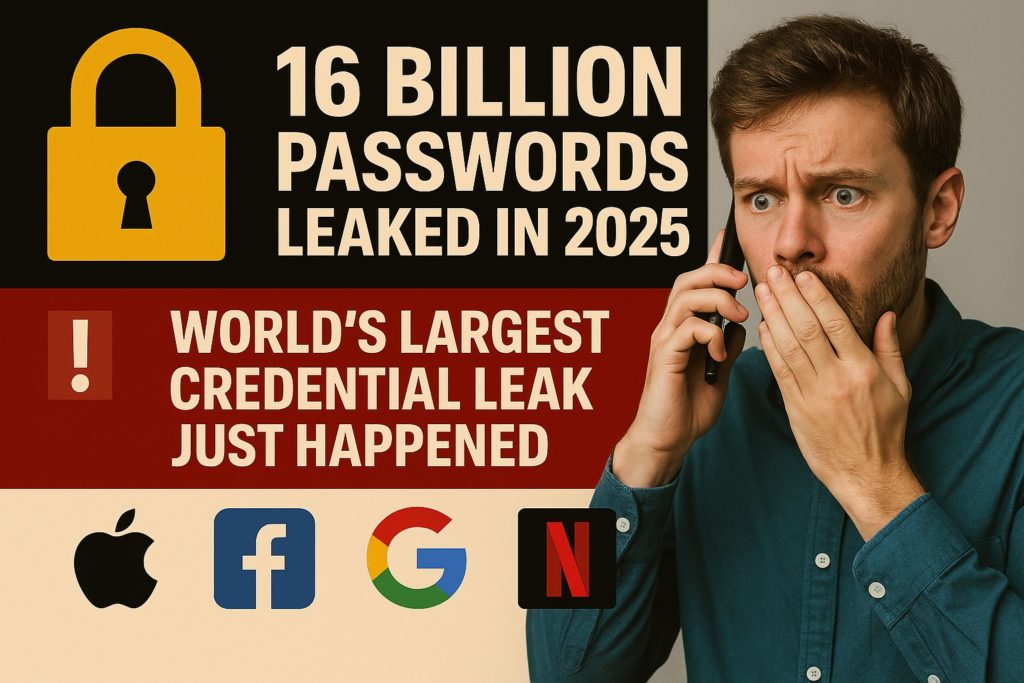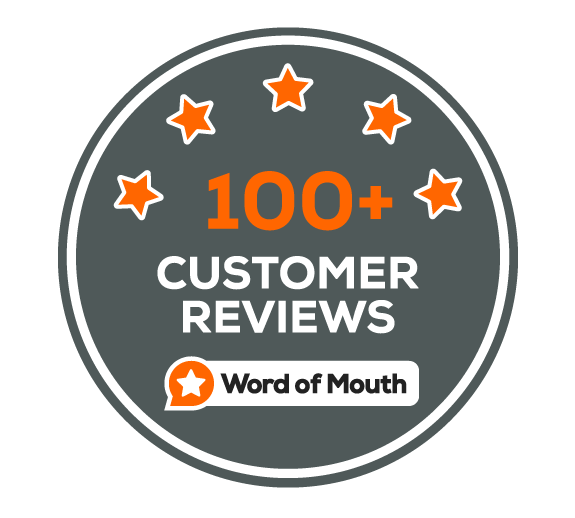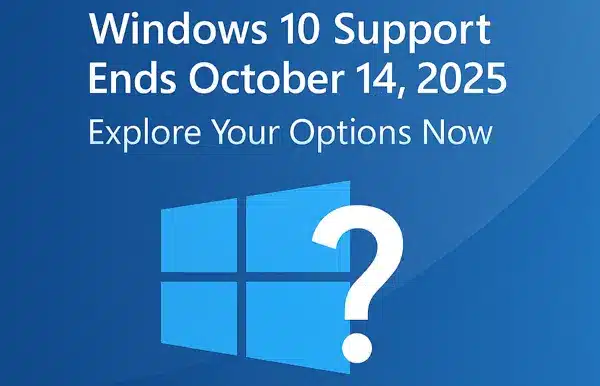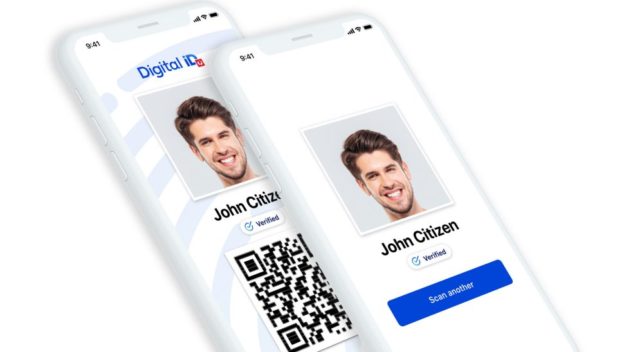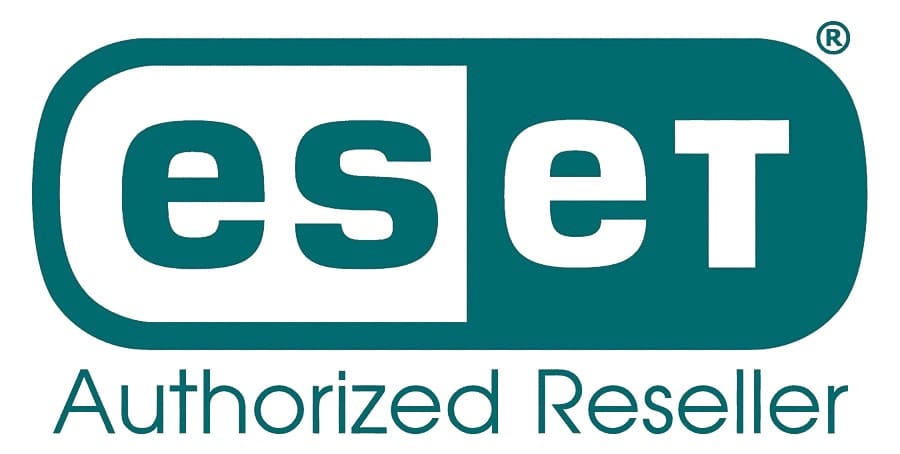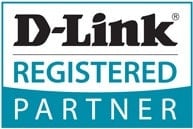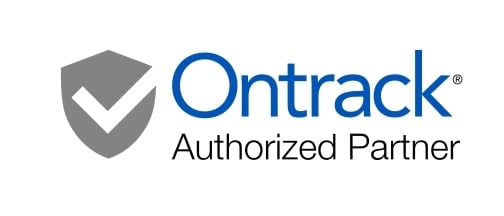🔓 16 Billion Passwords Leaked in 2025: Apple, Facebook, Google Users Urged to Act Fast
🚨 World’s Largest Credential Leak Just Happened!
📞 Worried Your Password’s Been Leaked? Call 1300 723 628 for Help Today
A cybersecurity bombshell has dropped in June 2025. According to a Forbes report, more than 16 billion login credentials have been exposed in a breach that combines credentials from thousands of smaller breaches into one massive, searchable database on the dark web.
The leak was indexed and made searchable by a threat actor using the alias “ObamaCare”, who published the dataset on a popular dark web forum. What makes this breach particularly concerning is that it includes plaintext passwords, some harvested via infostealer malware and others from poorly secured online databases.
Many credentials belong to accounts from Apple, Facebook, Google, Microsoft, Netflix, and other top-tier services, putting billions of users globally at risk. It also includes previously leaked data reused across accounts, plus sensitive tokens for two-factor authentication and recovery codes.
Cybersecurity firm Keeper Security, which analysed the breach, described it as “the most extensive public indexing of stolen credentials ever recorded.” The stolen data has been organised and filtered to allow criminals to find usable logins for credential stuffing, phishing, and identity theft.
These credentials come from both past breaches and fresh attacks, meaning some credentials are newly valid, while others give criminals insight into user habits—like repeated passwords and outdated login patterns.
🧠 Password Leak in 2025: What It Means For Everyday Aussies
If you have an account with any major tech provider (Apple ID, Gmail, Facebook, etc.), assume your data has been compromised unless proven otherwise.
Even passwords from 5+ years ago may still be valid—especially if reused.
The implications? Identity theft, unauthorised purchases, bank access, email hijacking, and full social media takeovers.
Let’s look at the Aussie landscape after this password breach:
- Over 22 million Australians use Google services, including Gmail, YouTube, and Google Drive.
- Roughly 15 million Australians have a Facebook account.
- More than 9 million Aussies use Apple devices tied to iCloud and Apple ID.
Despite these numbers, it’s estimated that less than 40% of Australians use two-factor authentication (2FA) on their main accounts, making them prime targets in the 2025 password leak.
✅ 2025 Password Leak Action Plan: What Aussies Must Do Now
- Check If You Were Compromised:
- Visit HaveIBeenPwned.com
- Enter your email addresses to check exposure
- Change Important Passwords Immediately:
- Prioritise banking, email, Apple ID, and social media logins
- Use long, complex, and unique passwords
- Turn On 2FA (Two-Factor Authentication):
- Use apps like Authy or Google Authenticator
- Secure Your Credentials With a Password Manager:
- Try Bitwarden, 1Password, or LastPass
- Watch for Phishing After the Leak:
- Don’t click links from suspicious emails pretending to be your provider
💬 The Original PC Doctor’s Response to the Password Leak
We’re already helping Australian households and businesses mitigate the risks of this record-breaking password leak. Whether it’s securing cloud logins, reviewing device access, or setting up proper 2FA—we’re here to help.
Don’t wait until your data is used against you.
🧾 FAQs: Everything Aussies Should Know About the 2025 Password Breach
Q: How do I know if I was affected by the 2025 password leak?
A: Use HaveIBeenPwned or ask us to run a breach scan across your devices and emails.
Q: My password was old—do I still need to change it?
A: Yes. If you’ve ever reused that password or still use it anywhere, change it now.
Q: Should I change my Apple ID or Gmail login?
A: If you’ve reused a password or notice suspicious activity—yes, urgently.
🚀 Final Thoughts on the Massive Password Leak in 2025
This leak isn’t just “big”—it’s historic. With 16 billion credentials in the wild, cyber hygiene in 2025 is non-negotiable. Don’t ignore the risk. Take action, protect your data, and if in doubt, get expert help.
Content Created on 20/06/2025 by
John Pititto
Managing Director
The Original PC Doctor


